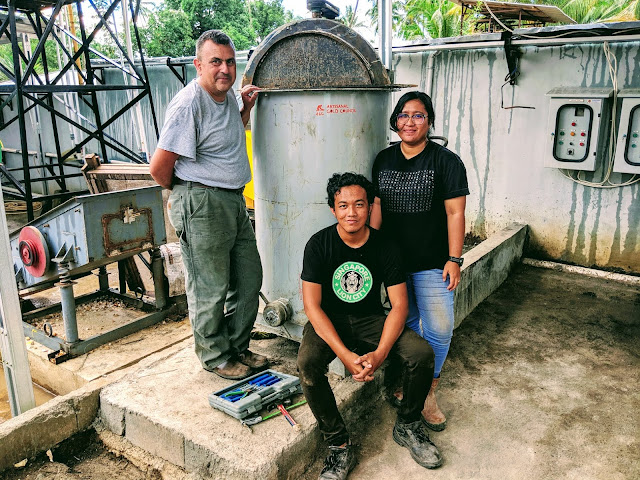Improving Occupational Health for Artisanal Miners in Peru: Monitoring and reducing mercury and respirable silica in ASGM.
The Artisanal Gold Council works to improve the health of miners worldwide. As part of ‘Mejorando la Pequeña Minería Artesanal de oro’ (MEJORO), our 5 year project in Peru, we are working with local miners to improve practices and reduce environmental and health impacts at processing sites. Mercury vapour and respirable silica dust exposure have previously been highlighted as key health concerns within the Artisanal and Small-Scale Gold Mining (ASGM) sector, and the Minamata Convention specifically targets the elimination of mercury use in the sector.
Our integrated approach to improving occupational health not only seeks to raise awareness on health issues in ASGM, but also to provide practical and accessible alternatives and the necessary training and resources to assist artisanal miners in improving their work environment.
Below: workers being fitted with dust sampling pumps and media.
By conducting ambient air sampling of silica and mercury vapour at project sites the AGC seeks to collect data on worker exposure levels, and monitor changes over time, with the ultimate objective of quantifying the acuteness and extent of exposure while systematically reducing occupational health risks, and eliminating mercury use.
The results from the initial analysis of occupational exposure to mercury and silica associated with current processing techniques indicate that working environments are often high for mercury and silica exposure. Mercury amalgam burns expose workers to high concentrations of mercury vapour, while workers responsible for dry milling without the proper protective masks are exposed to respirable silica usually above permissible levels.
In collaboration with local governments, miner cooperatives, and not-for-profits, the AGC’s activities in Peru will raise awareness on occupational health, provide training on environmental and health best-practices, and introduce alternatives to rudimentary processing techniques which are associated with high occupation risks - such as mercury amalgamation and dry milling. Mercury free processing systems which include gravimetric shaking tables and wet panmills are viable alternatives to current systems.



Comments
Post a Comment
The Artisanal Gold Council is a registered non-profit organization that improves the environmental and economic sustainability of artisanal and small scale gold mining communities.